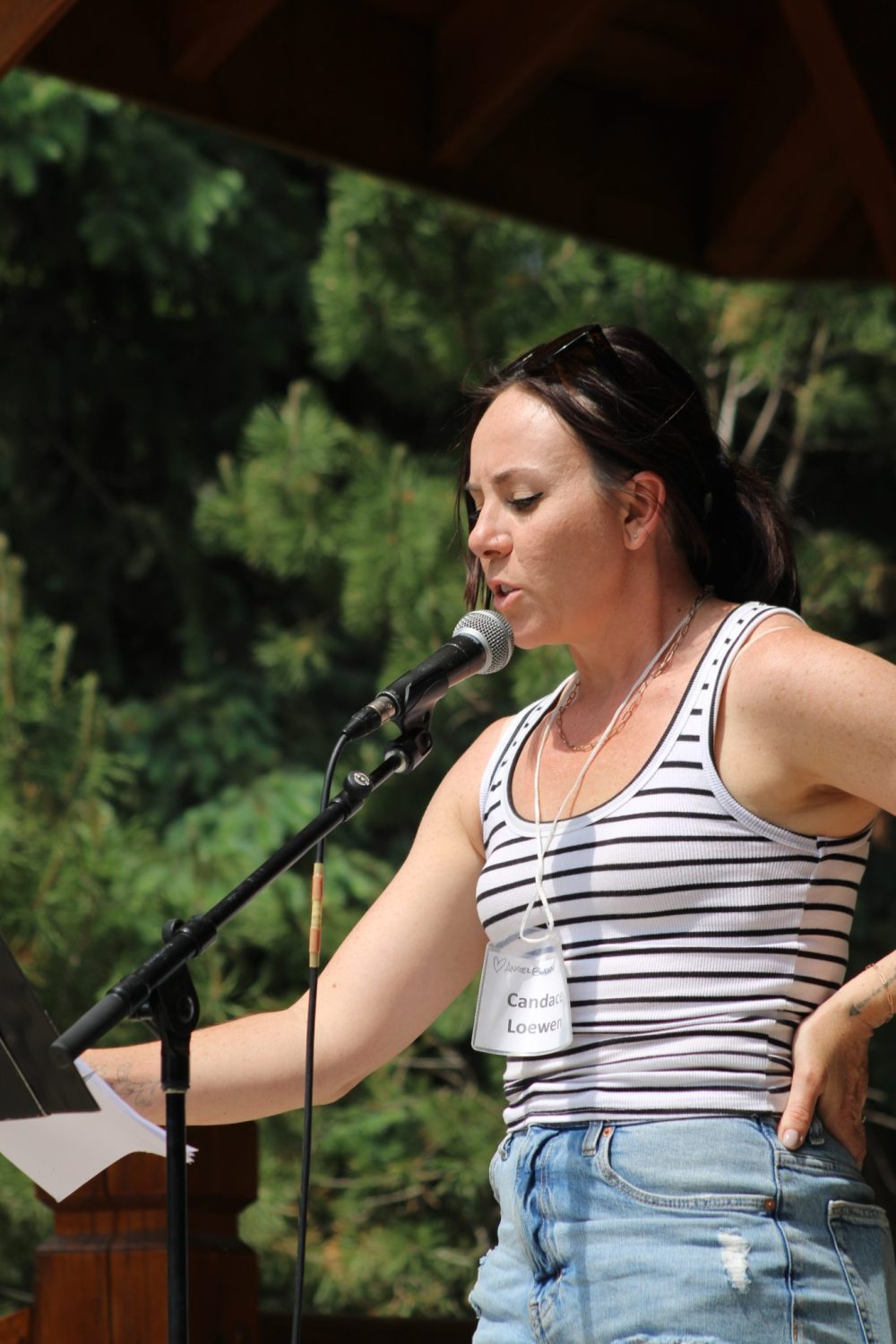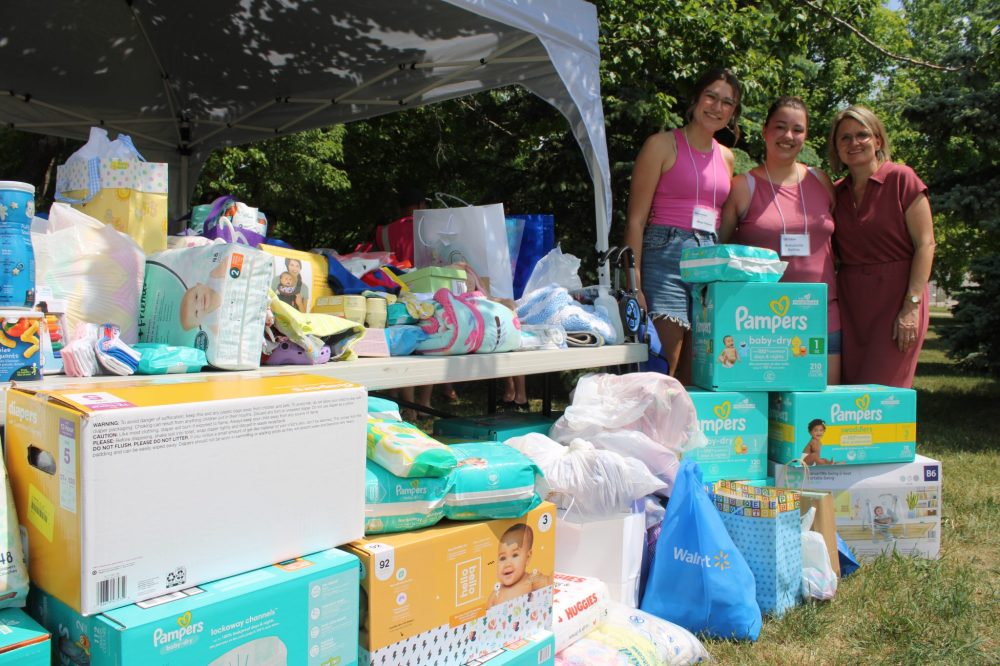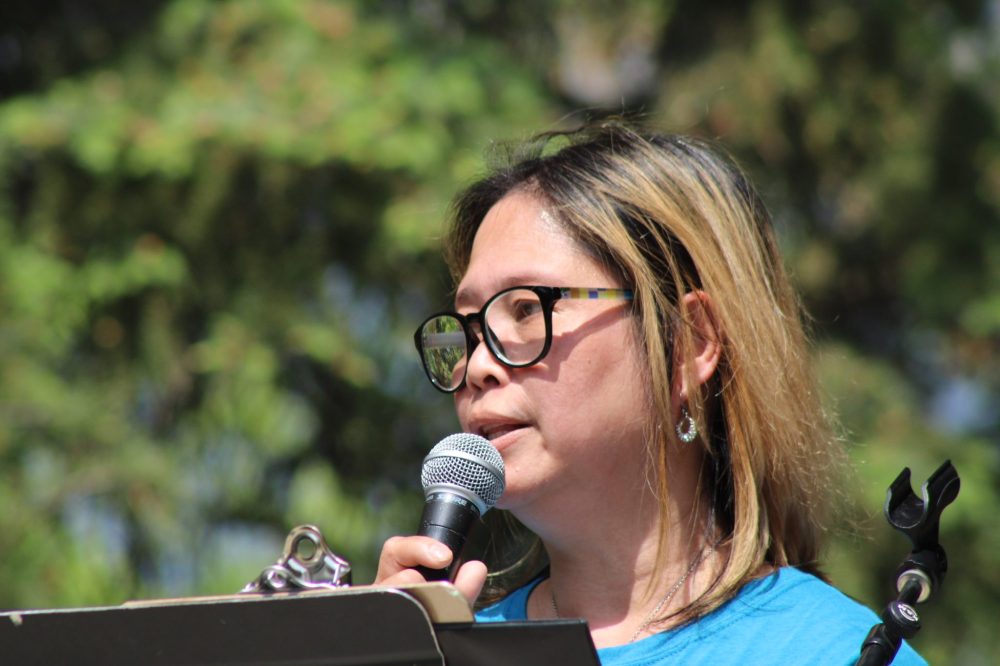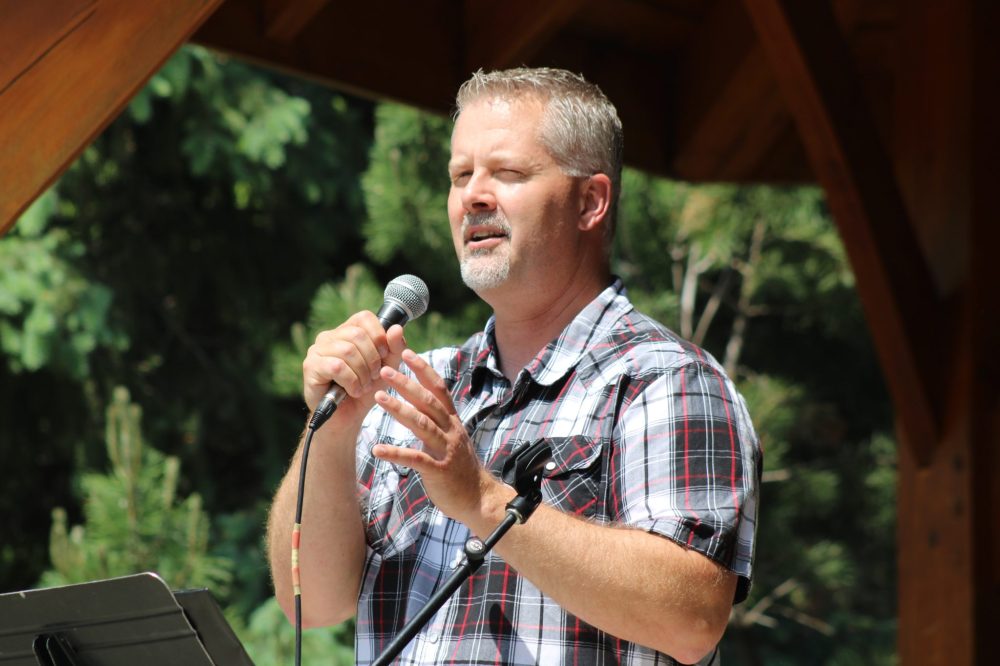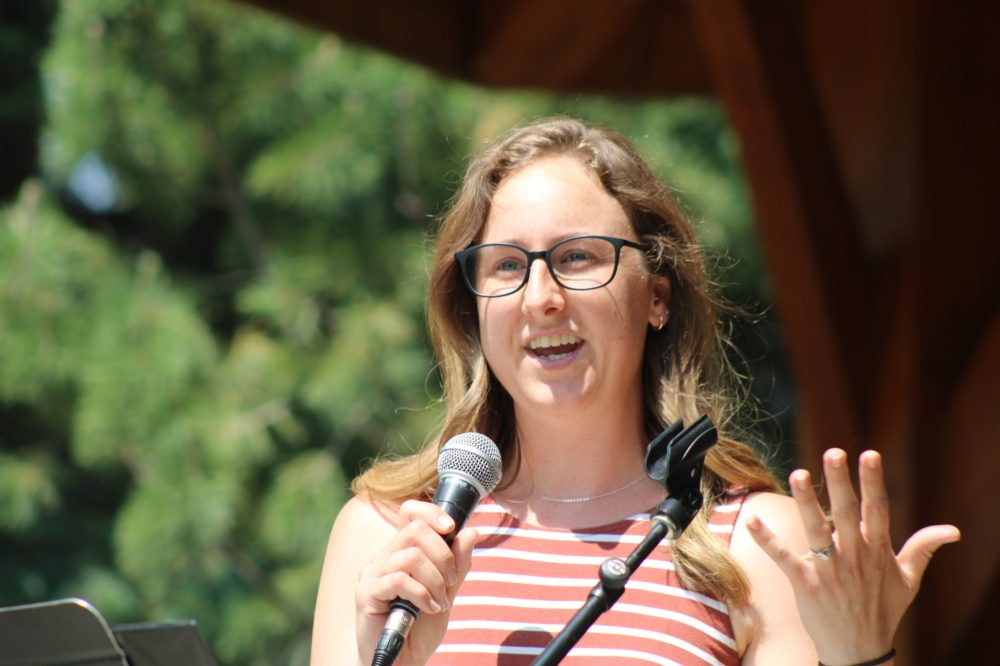Numbers swell for Walk for Life
Advertisement
Hey there, time traveller!
This article was published 12/06/2023 (769 days ago), so information in it may no longer be current.
Speakers focused on a message of love for women, the unborn, and the elderly as close to 700 people took part in the Walk for Life in Steinbach on June 4.
The crowd braved the stifling heat and humidity to fill pockets of shade at K.R. Barkman Park to listen to speakers share their stories.
But there was no mention of political efforts or condemnation and instead the focus was on how every attendee could better support mothers, mothers to be, and those who may be considering M.A.I.D, (medical assistance in dying).
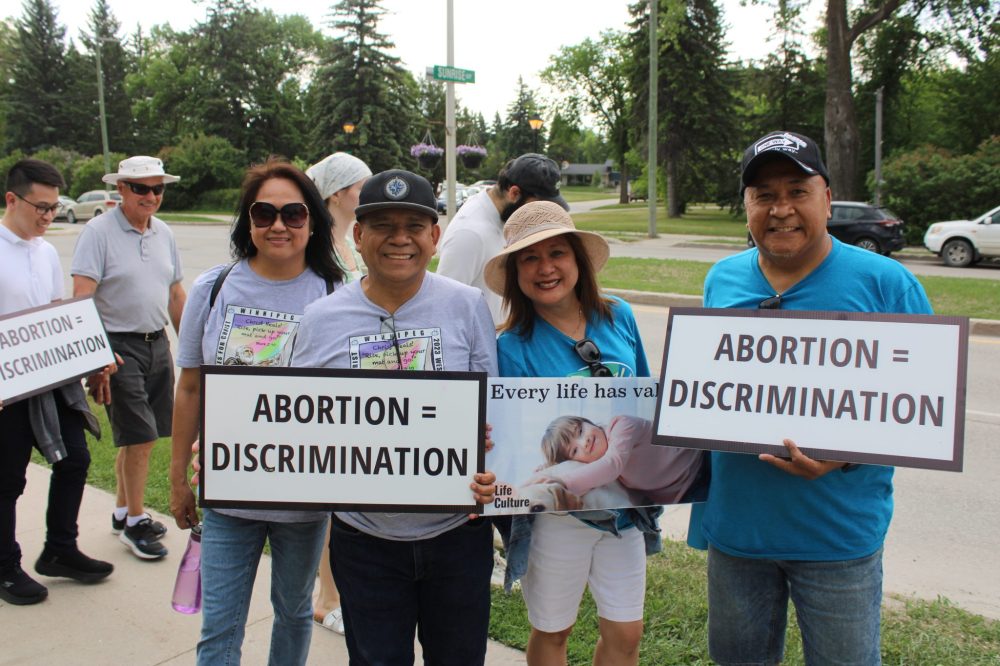
Susan Penner, executive director of Life Culture Canada said they were pleased with the numbers which were up by 40 percent from 2022.
This year they also accepted donations of diapers, clothes, baby items, blankets and formula which will be distribute as needed through Life Culture Canada, Selah Place in Winnipeg and the Steinbach Family Resource Centre.
Life Culture Canada describes their mission as “to promote consistent culture of life from the beginning of life to its natural end.”
“Though our culture promotes abortion as a routine medical procedure, that isn’t how most women experience it,” she told the crowd. “One third of Canadian women have had an abortion by the time they’ve turned 35. That means there’s a lot of hurting women all around us.”
She told the crowd that 10,000 Canadians used M.A.I.D. to end their lives in 2021, adding their reasons were not primarily pain and suffering, but inability to do things they used to love, feeling like they were a burden and struggling with loneliness and isolation.
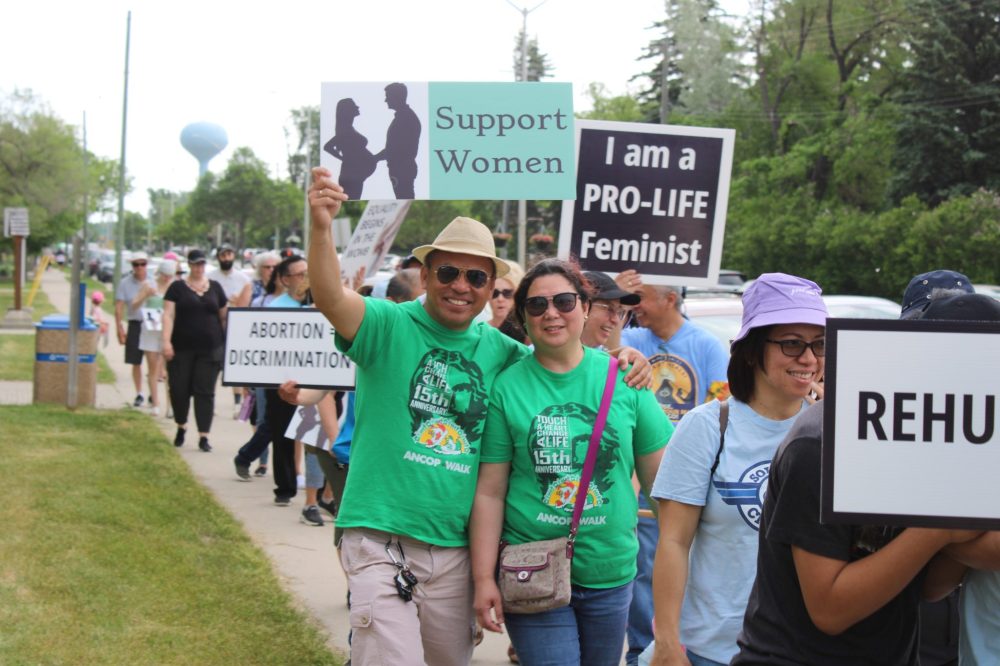
“Whether it is abortion or M.A.I.D., killing is not the answer to social problems,” she said. “The answer is a culture of caring.”
She described that culture for the crowd.
“It looks like valuing the lives of the unborn. It looks like loving and walking alongside women in crisis. It looks like spending time with people that are aging, disabled and ill. It looks like being equipped to engage in thoughtful conversations about life when the opportunities present themselves, and it looks like seeing the humanity of every person, whether they agree with us or not,” she said. “Every life has value and we will make a difference for life when we care about those around us.
Pansy Chapel Pastor Kevin Friesen told the crowd that an event like this should be the first step for every one of them.
“It is not difficult for us to prove Biblically that life has value, that there is sanctity to life,” he said. “The challenge from James 2:14-17 is that if you see a brother or sister in need of clothes and food and you just say to them ‘be warm and well-fed’ and do nothing to help them, you haven’t really actually done anything to address the problem.”
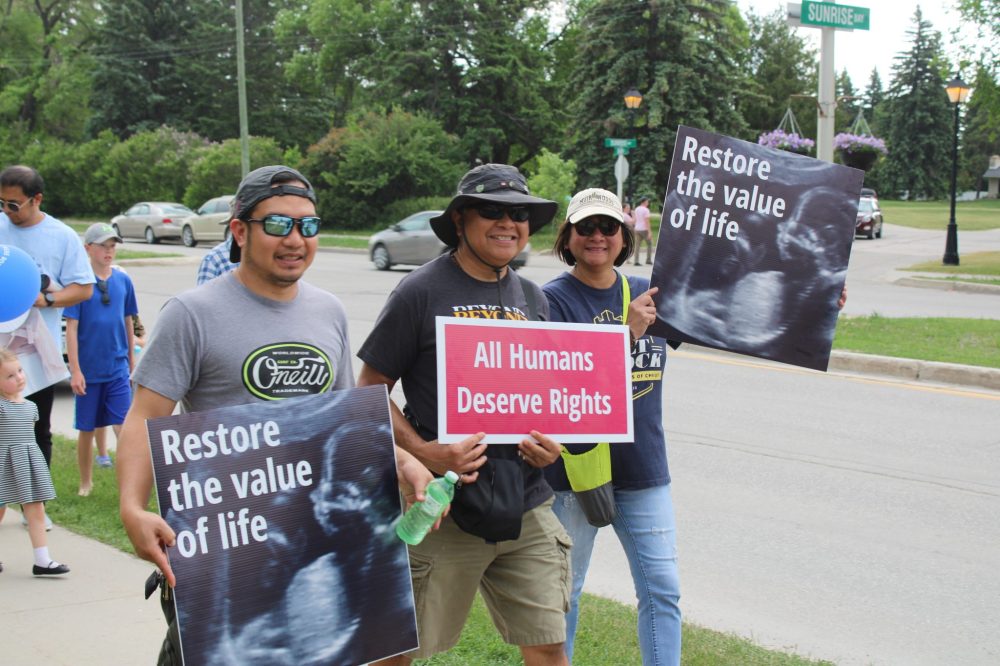
He urged those in attendance to seek other ways they can show their support.
It’s also not just about the fetus for Melanie Reimer, founder and board chair of Selah Place.
Based in Winnipeg the organization provides “a safe healing home to educate, equip, and embolden mothers in need through counselling, resources and the gospel in a Christian community.”
Reimer said the idea for helping mothers came about after she and her husband sought to foster while she was pregnant with their fifth child. Told to come back in a year, they looked into how they could help the mothers instead.
With 9,000 children in foster care, she said there are many mothers out there who simply are not equipped for motherhood. And the effects can be seen through generations.
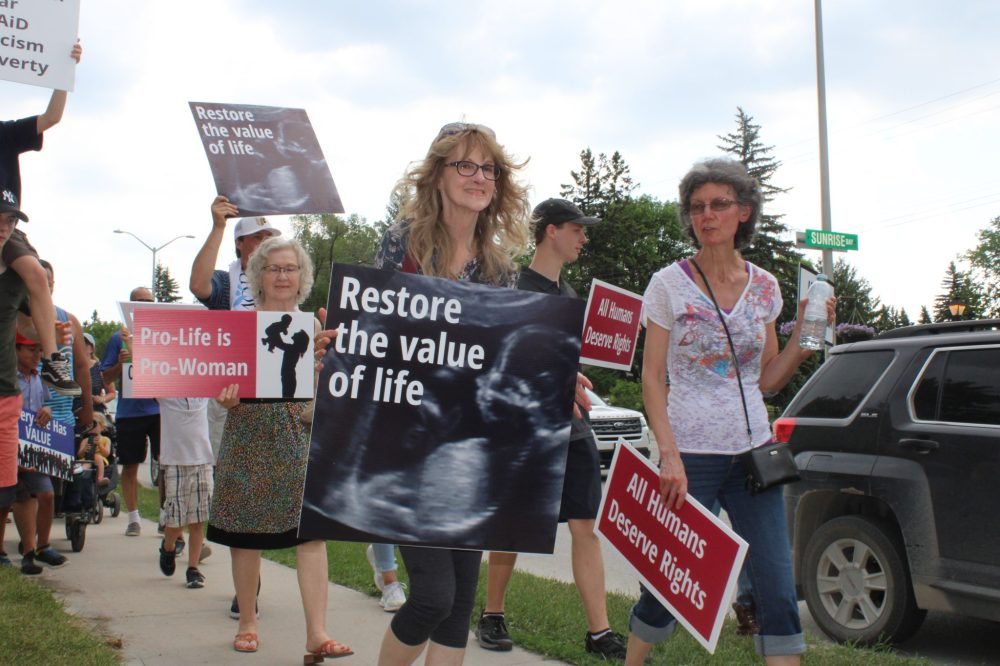
In fact, 49 percent of women who were in foster care as children, have their children placed in the child welfare system as well. For the general population that number is 10 percent.
“These young moms lack the support and the resources that they need to transition to adulthood and be successful parents,” she said. “They’re at a higher risk for homelessness, unemployment and mental health issues. They’re also more likely to choose an abortion or have their own children placed in foster care as they once were.”
Reimer asked the crowd to imagine a scenario where mothers are supported so they don’t have to give up their children or can reunite. She urged them to do what they can to support mothers.
“You may even be a mom here today that needs help,” she said. “Do not be afraid or ashamed to seek it.”
Judith Vasquez also shared her story of a battle with lupus, a disease in which one’s immune symptom attacks one’s own tissues and organs.
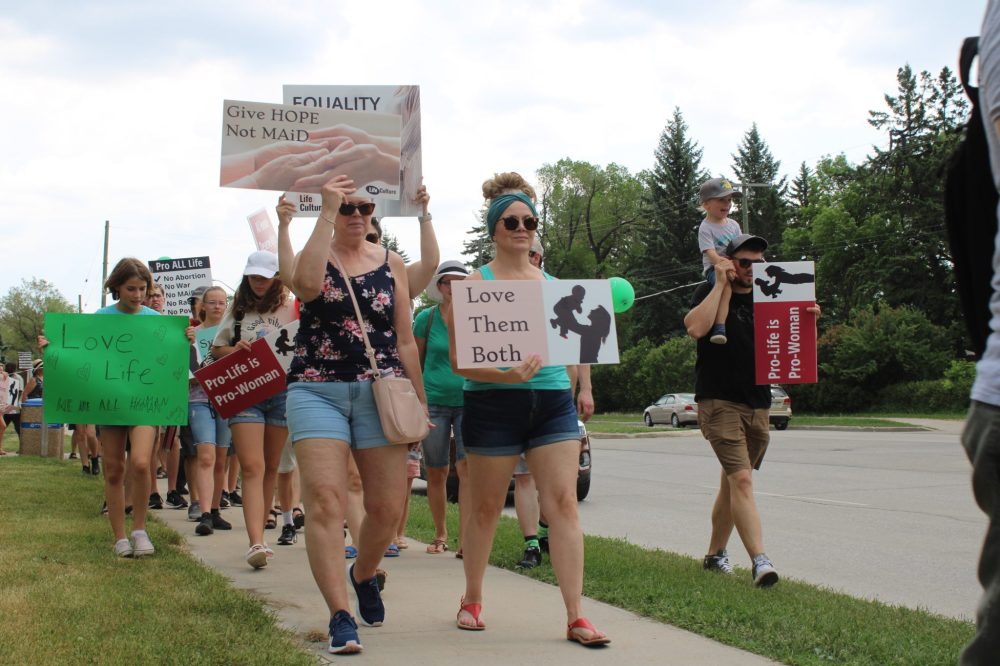
After becoming pregnant she was told by her doctor to consider abortion, because of concerns of Down syndrome, spina bifida and cerebral palsy.
Her children were later born healthy.
“We were given an invitation and encouragement to terminate the pregnancy and abort the baby for the child’s and our family’s sake,” she said. “With the support of our church community and the pro-life movement in Winnipeg we trusted in God and kept our child.
Candace Loewen of Angel Baby Pregnancy and Infant Loss Support argued that normalizing abortion creates a culture that dehumanizes the “preborn”.
She shared the grief she felt when she learned in 2011 at 20 weeks pregnant, that no heartbeat could be detected.
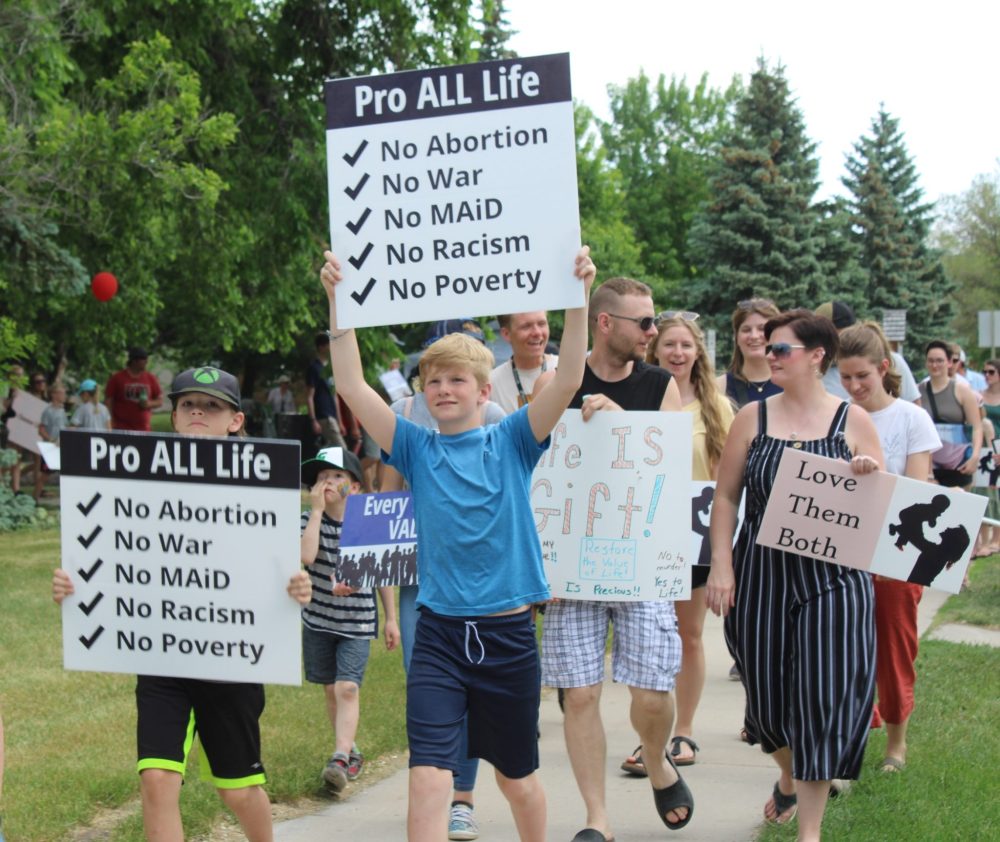
“The cultural push to dehumanize the value of a pre-born life has many ramifications including the invalidation of a mother’s grief when she has just experienced a miscarriage, still-birth or an abortion,” she said.
Loewen said women are told that grief is valid.
“But how are we supposed to believe it’s valid when we are also told that a baby in the mom’s womb is not valuable enough to protect?” she asked. “It makes the value of life subjective and ultimately means the value of all of our lives are subjective.”
Loewen added that life should be valued at all stages.
“A better way forward is a culture that values life,” she said.
